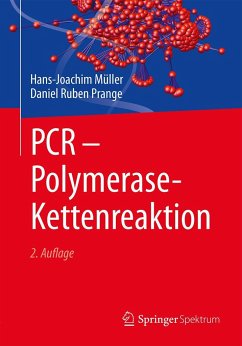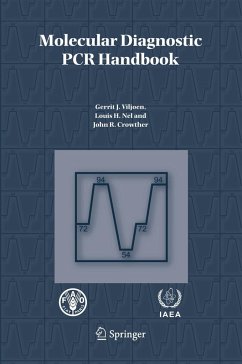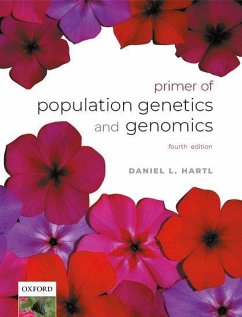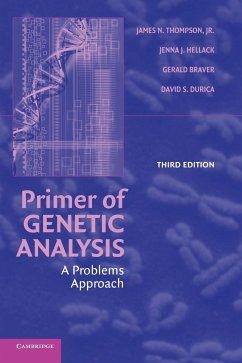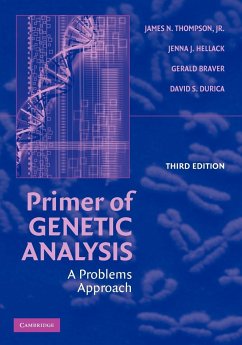
A Thermodynamic Approach to PCR Primer Design
Versandkostenfrei!
Versandfertig in 6-10 Tagen
39,99 €
inkl. MwSt.

PAYBACK Punkte
20 °P sammeln!
The polymerase chain reaction (PCR), a method for making many copies of a specific DNA fragment, is a fundamental tool of molecular biology. The design of PCR primers, the DNA molecules binding the ends of the fragment to be amplified, is a long standing practical problem crucial for the success of many biological investigations.The book describes the application of principled methods and comprehensive thermodynamic data for predicting DNA binding and folding stabilities to PCR primer design, in order to increase the specificity and success rate of PCR reactions. As well as describing a method...
The polymerase chain reaction (PCR), a method for making many copies of a specific DNA fragment, is a fundamental tool of molecular biology. The design of PCR primers, the DNA molecules binding the ends of the fragment to be amplified, is a long standing practical problem crucial for the success of many biological investigations.The book describes the application of principled methods and comprehensive thermodynamic data for predicting DNA binding and folding stabilities to PCR primer design, in order to increase the specificity and success rate of PCR reactions. As well as describing a method for designing PCR primers, this book describes efficient and sensitive methods for detecting oligonucleotide binding sites in genomic DNA sequences.Finally, this book address the problem of designing primer pairs to amplify multiple products. Here the challenge is choosing sequences with high specificity and perfect 3\\\' complementarity to subsets of a large collection of genomic elements.This sequence choice is far easier when thermodynamically homogeneous sequences are selected.



